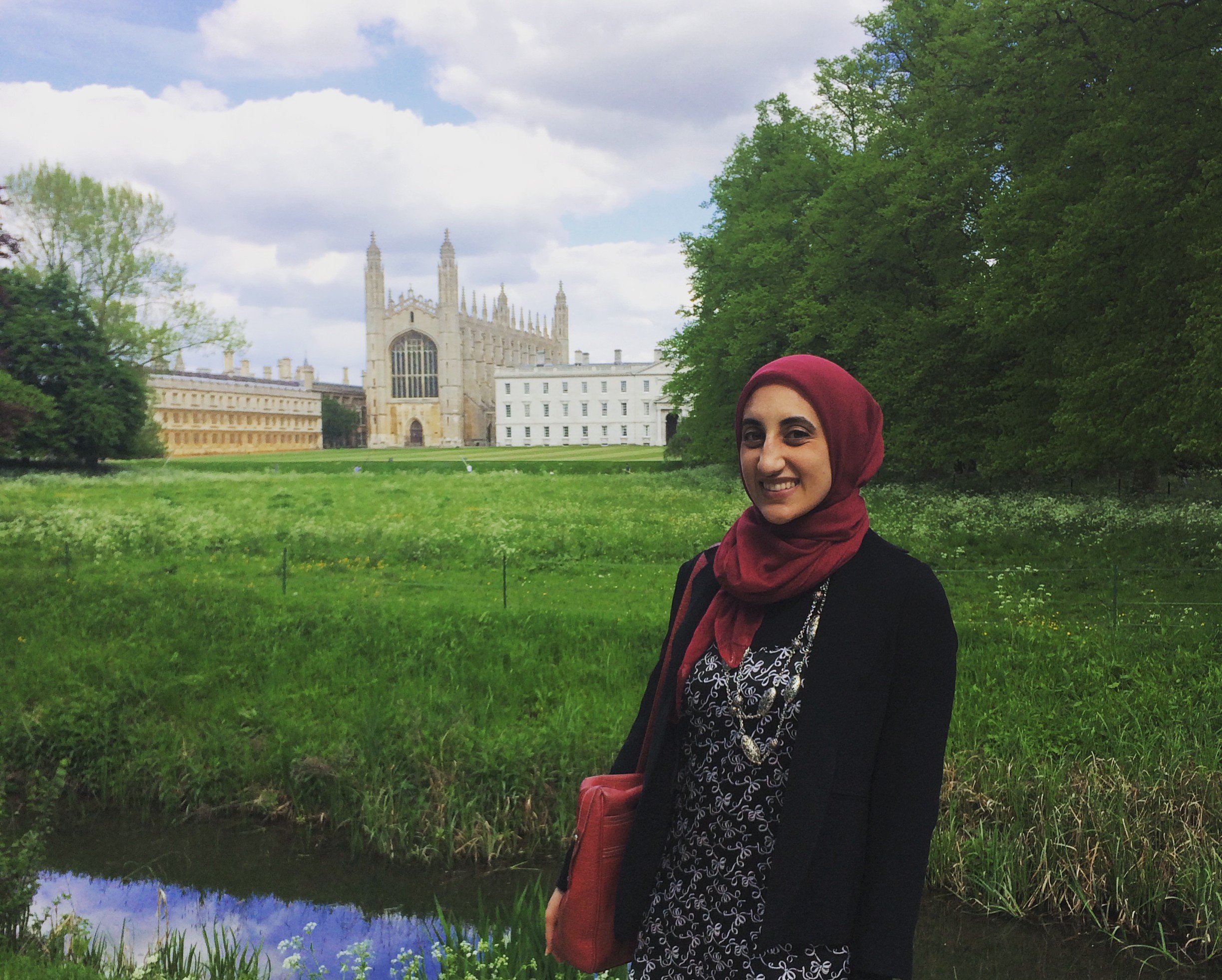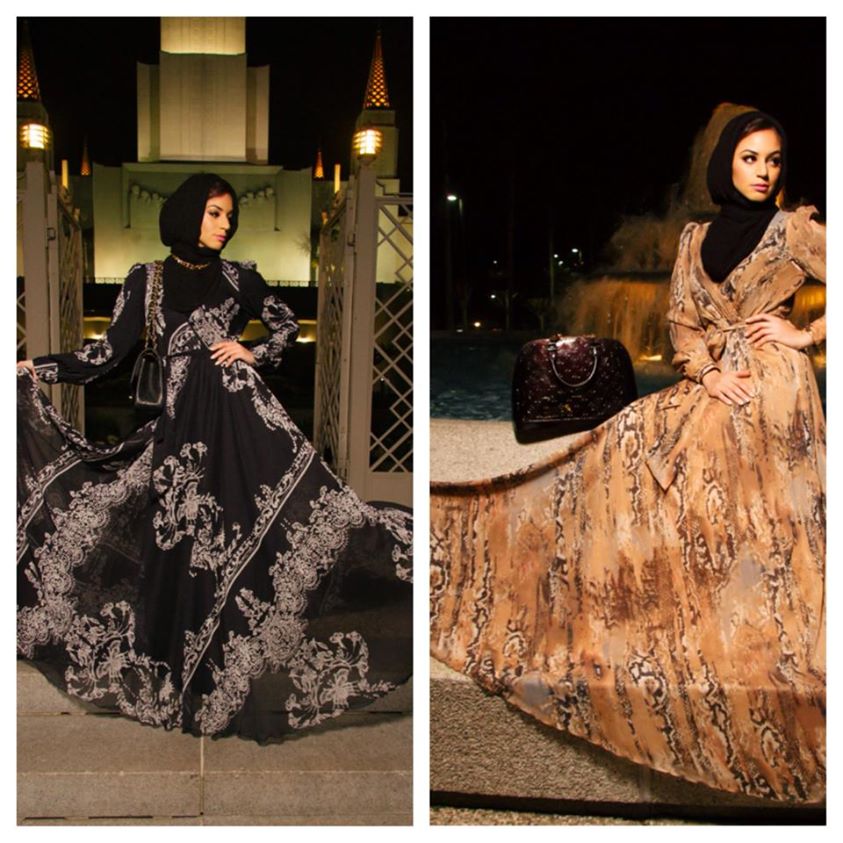Hijabi. The word stumbles about my tongue in an ungainly fashion instead of rolling off gracefully. When it escapes my mouth, it falls flat. I realize then that I hate it. This word confines me within a box, reducing who I am as a human being to a dress code I chose many years ago.
Wearing hijab has been a beautiful experience. For ten years, it has symbolized the freedom to dress as I wish, but more importantly it has reminded me of my connection to a merciful God who shows me His love through subtleties like an acquaintance saying the exact words I need to hear or a plan delayed for a reason that I later realize is a blessing. Aside from the spiritual, the hijab has also acted as a catalyst for insightful conversations with both strangers and friends—discussions about xenophobia in America, about the role of religion in public and private American life, about God, and about faith and choice.
In rooms full of people who do not dress like me, the hijab is a reminder to both myself and to those around me that Muslims are deeply woven into the fabric of this society. The hijab is my tangible, physical reminder that I am committed to God and enabled by Him in every moment, every breath of this worldly life. And finally, the hijab is a symbolic reminder that what sits inside of me matters more than what is on the outside; it is the former that determines my worth, not the latter. For those reasons, I treasure it.
But as I mark the ten-year anniversary of my wearing hijab – pairing my scarf with modest suits, dresses, sweats, and swimsuits – I realize that this hijab is eating away at my identity. My hijab has become too prominent a part of who I am, overshadowing all other aspects of me and causing people to forget to see me as an individual. Before I am my character, before I am my beliefs, before I am my personality, I am a person who wears hijab – a “hijabi.”
The hijab has become who I am, dwarfing my aspirations, my beliefs, and the person I want to become. Muslim men talk about wanting to marry or not marry a hijabi, as if a woman’s hijab was ever their choice; women in the community tell me I should have waited to wear hijab until I was older, as if it robbed me of my youth; others praise my hijab, as if it is undisputable proof of my good character; and friends fear community repercussions for removing their hijab, as if they will they be seen as weak, insincere and vacillating. Meanwhile, my agency is slipping away. What had been my personal decision has been made available for public consumption and judgment in the metaphorical town square.
What if I told you that the way I dress is not a state of being? That who I am fluctuates, and what I wear is not a sign of strengthened or weakened faith in God? Hijab is not my identity. I am a nuanced, inconsistent and evolving human being. I have a character to develop, beliefs to test, and talents to use before I define myself by my clothing. The entire purpose of dressing and behaving modestly is to transcend what is on the outside and get to work on one’s mind, soul and relationships. For now, my hijab is staying with me because of what it has done for me, but I’ve come to terms with the fact that it is not a constant.
I choose to wear hijab. But I am not a hijabi.
[separator type=”thin”]
Hadeer is a Southern California native, a lawyer, and a lover of books. When she’s not researching women’s contributions to Islamic jurisprudence or trying out new desserts with her family and friends, she can be found contemplating life in nature.






That’s so true. Aside from hijab being a commandment from God, one of the reasons why women choose to wear it is because it helps her show her personality and it gives the message that she is more than what is on the outside. But often times hijab get turned into only a visual piece and women end up judged and defined based on her wearing it. The hijab, no doubt, is an important aspect of the Muslim woman’s life, whether she wears it or not. But it doesn’t define who she is, it is not her entire being. It is just a piece of her complexity, her values, her faith, and her personality. Great piece!
I agree with Chelsea’s comments regarding the article. For many in the Muslim community, Hijab, sadly has also turned into a symbol of “good muslim woman” for those that wear it vs “bad Muslim woman” for those who don’t”. On more than one occasion I’ve heard Muslim brothers state ” I know she’s a good person/trustworthy/honest because of her hijab”. Its attitudes like this that make some women afraid to remove it. I stopped wearing the head covering after 10 years because I realised I was wearing it for the wrong reasons – because I wanted to be see as a “real Muslimah”. When I did take it off I faced ignorant comments like “You’re probably taking it off because you want to attract a man right?”. As though my hijab is about everyone else. I’m more than just a head-covering and when I do wear it again Inshallah it will be for me and no one else.
Another issue is that our community is sucked into superficial visual symbolism. If you wear a beard or a hijab you’re a great Muslim and if you don’t then you’re “weak” and get side-long glances. It would be refreshing if we could judge each other based on our actions rather than clothing and facial hair.
Salaam.This article is great! Thanks sister Hadeer.I also thank sisters Aaliyah and Chelsea for their insightful comments.However my advice to all of us would be to ignore as much as we possibly can, the perceptions,attitudes and pressures from those around us when it comes to obeying Allah’s recommendations for our own spiritual benefit.
Those who wear Hijab for the wrong reasons should not concern us much, those who judge our character rightly or wrongly because we wear Hijab,their intentions and fruits of their judgement will go their account not ours. Those who oppose us and abuse us because we choose what Allah recommended for us over what current acceptable styles and trends in society dictate should not deter us…..for their is no hardship that we endure in following this path,except that Allah records it to our spiritual credit…..
May Allah make it easier for us to sincerely follow the regulations He has out of His Mercy prescribed for Us. And May Allah reward us for every small effort we make with spiritual and emotional strength to patiently persevere in His path.May He also have Mercy on us when we temporarily falter….for He is Often Forgiving Most Merciful…
Allah’s view of us is what finally count on this world which He is in firm control(even if we may often not perceive it), and in the hereafter and final judgement in which we firmly believe.
Take care!